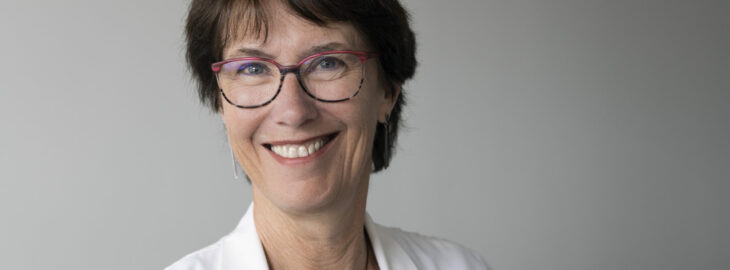FoR: Professor Macintyre, you are the president of the BioMed Alliance. Could you briefly explain to our readers what the BioMed Alliance is?
Macintyre: The BioMed Alliance was born in about 2009 due to an initiative of the CEOs of four associations from the fields of diabetes, respiratory disease, cardiology and cancer, because they saw a need for a closer exchange between the academic leadership of their associations. It became a success and over time the membership grew from four societies to currently listing about 35. It is a safe space where we can discuss our shared difficulties, aims and objectives and thus be stronger together. The extension of that is that we only touch upon transversal subjects. Any topic we work on needs to be of interest for at least ten of our member societies.
FoR: So what does the BioMed Alliance do?
Macintyre: Essentially, we are trying to get highly specialised experts to talk with a single voice and – importantly – with a voice that is understandable for policymakers, lawmakers and for the general public. For this, we have to learn how to do policy because medical specialists are not trained for this work. This is why we are supported by policy officers. We are there to build confidence and to become constructive actors in designing the European health space. Regulators have realised they need to talk to all the different stakeholders and we want to be one of those respected stakeholders that they are listening to.
FoR: What is the main message that you want to convey to regulators?
Macintyre: Initially, we were created to protect medical research. The founding members wanted to build something like the National Institute of Health (NIH) in the US for Europe. However, at the time it was considered inappropriate to have big, physical institutes, so it became a smaller functional body called the Scientific Panel for Health, a science-led stakeholder platform, led by Pr. Karin Sipido, a Biomed Alliance past president, which elaborated scientific input until approximately 2021. But what started creeping in even before COVID, was a need to have a voice in regulatory matters. I don’t think many people choose to become medical specialists because they’re interested primarily in the regulatory aspects of their discipline, but as you get more senior, you realise that you not only have to live with regulations but can possibly impact upon them. Due to COVID, we are now in a period where there is serious activity to shape the European health union, so we need to be there, on the one hand to protect our members against a perceived threat, and on the other hand to support the European Union, because if all we do is take for granted what the EU does well and only blame it for its excessive bureaucracy, we are not doing anyone who believes in Europe a service. So, we have to roll up our sleeves and say, “What can we do to help?”.
FoR: And why is it better to do this together rather than each specialty acting alone?
Macintyre: Because the European Commission won’t listen to each specialty on its own. There are hundreds of medical specialties. At Biomed Alliance, we are a one-stop-shop – if the Commission comes to our meetings, it saves them 35 other visits, and they are not showing any favouritism. Also, I think we have gradually learned to be professional advocates. If we all just come and bang on the door and say we need more money, it does not get us anywhere. Everyone wants more money.
FoR: So what does it mean to be a professional advocate? What do the people at the BioMed Alliance do on a day-to-day basis?
Macintyre: If one of our members raises a concern and it is shared by other members, we start a discussion on what to do about it. Most EU laws are very complicated, and the devil is in the details. Policymakers do not want to discover that a law is not applicable during the implementation phase, because then they have to go back to the Parliament and Council and change the law. So, they have to listen to the right people to make laws that are applicable. So we try to put out a clear message, which often ends up in a position paper of two or three pages, that we then send to the policymakers. The other way we get engaged is that we send experts to the multidisciplinary stakeholder and coordination groups that the Commission runs with national competent authorities. To my knowledge, every time we have applied to join such a stakeholder forum, we have been accepted because we have built confidence and gained the reputation of being prepared to contribute constructively to these groups.
FoR: Your presidency has started in January and will go on for two years. Do you have any specific goals for this time?
Macintyre: I would like to increase the involvement of as many of our member societies as possible. I think it is always better to be an active contributor than a passive consumer. I also want to set up training in regulatory science for medical specialists, so that we can be constructive contributors to European health policy. Overall, I want to serve our member societies and help the European union realise its potential.

You have to be logged in and an ESHRE member in order to comment.